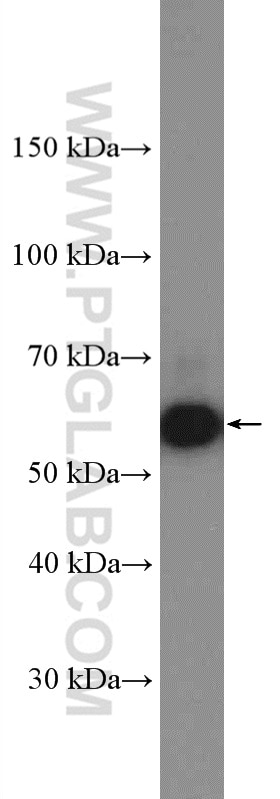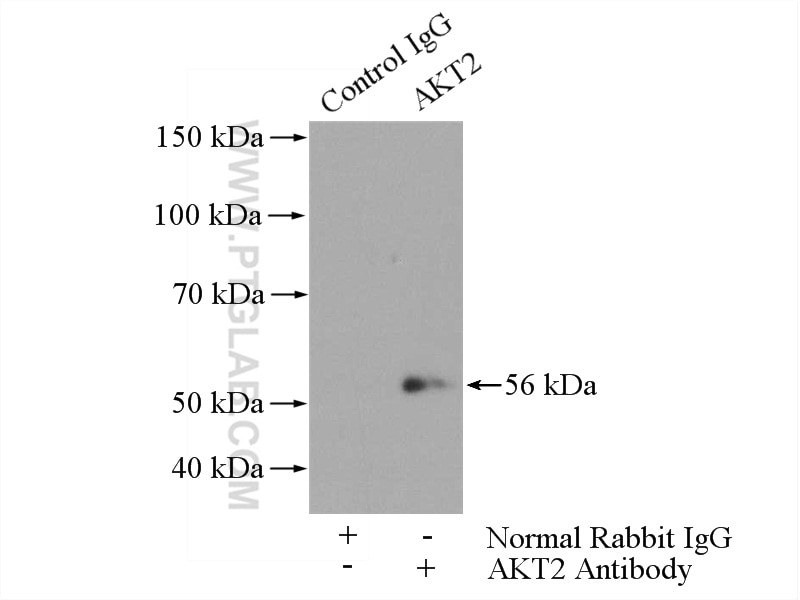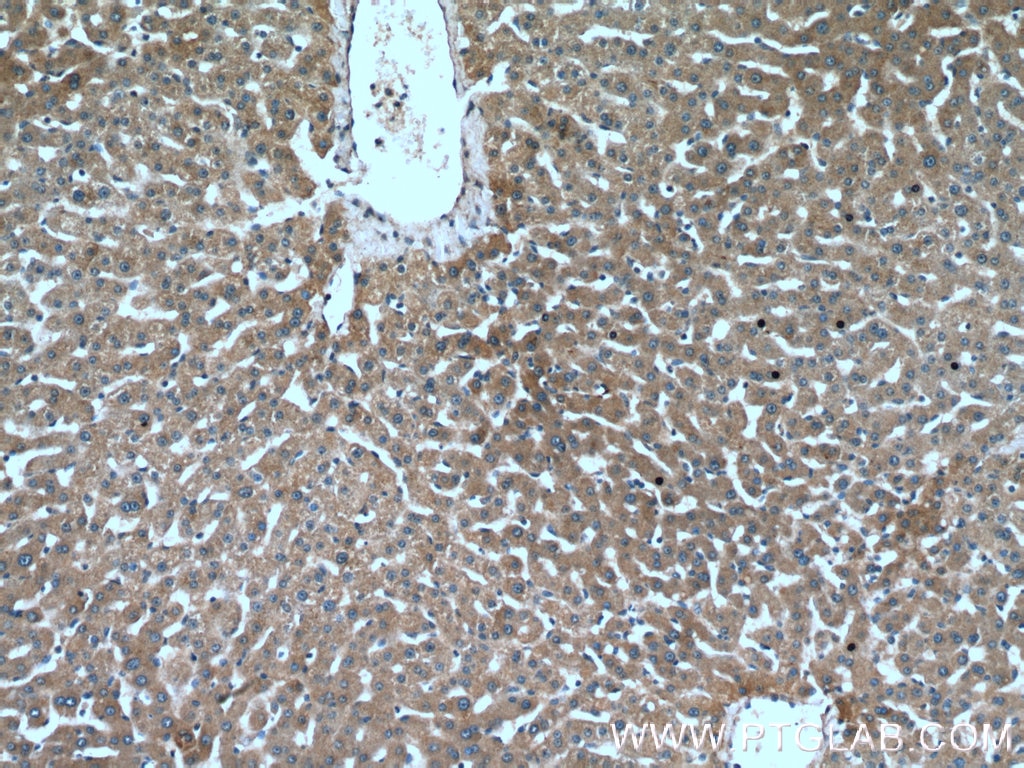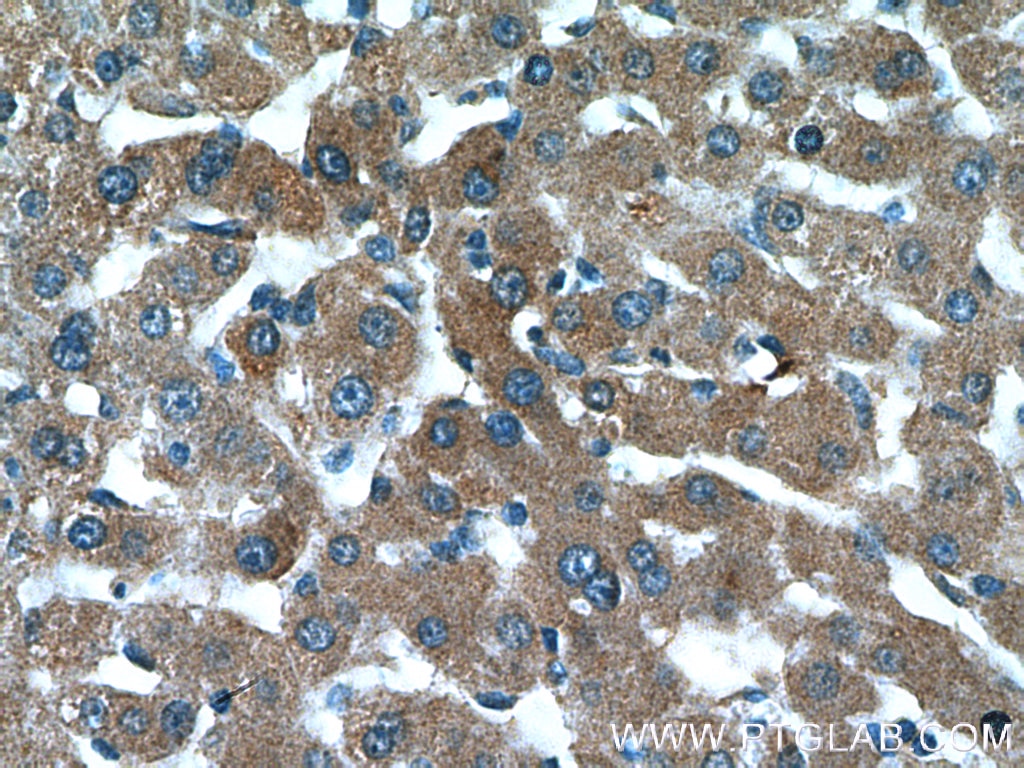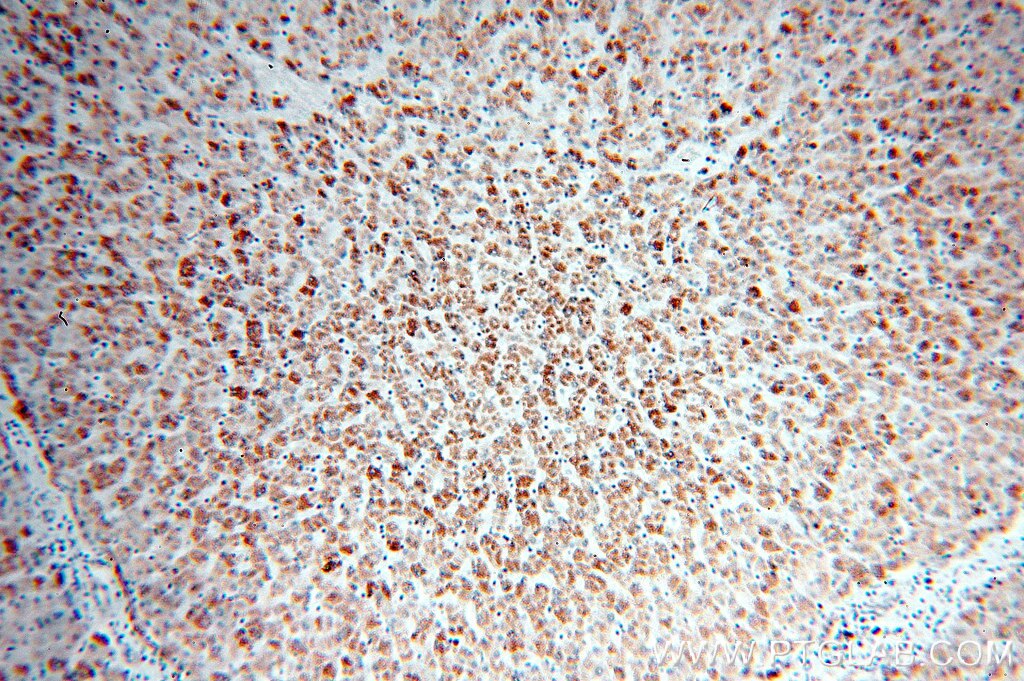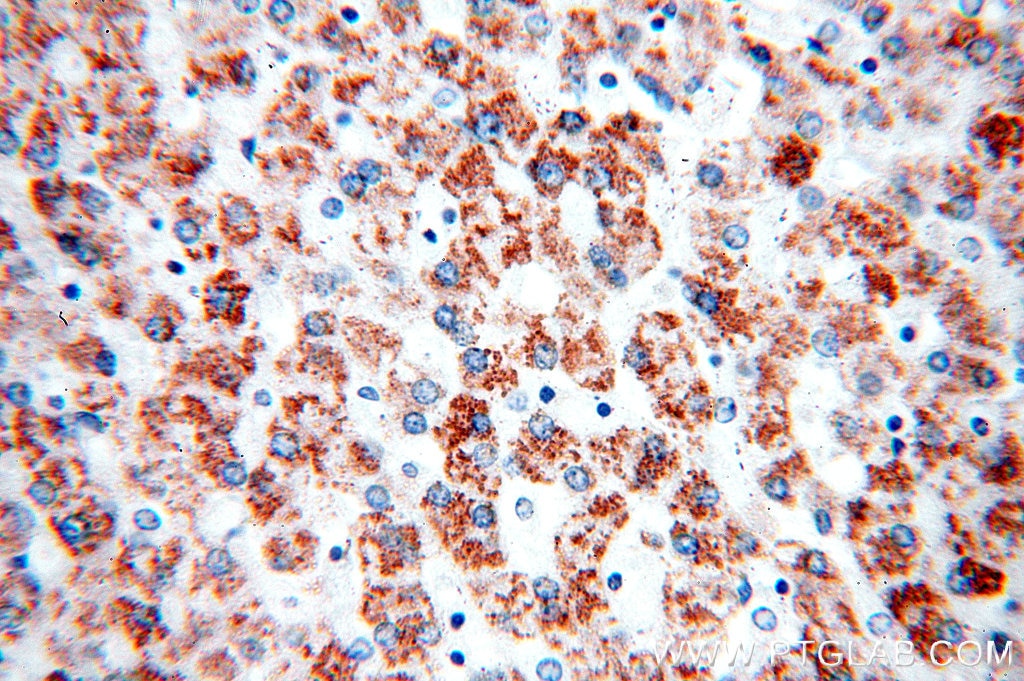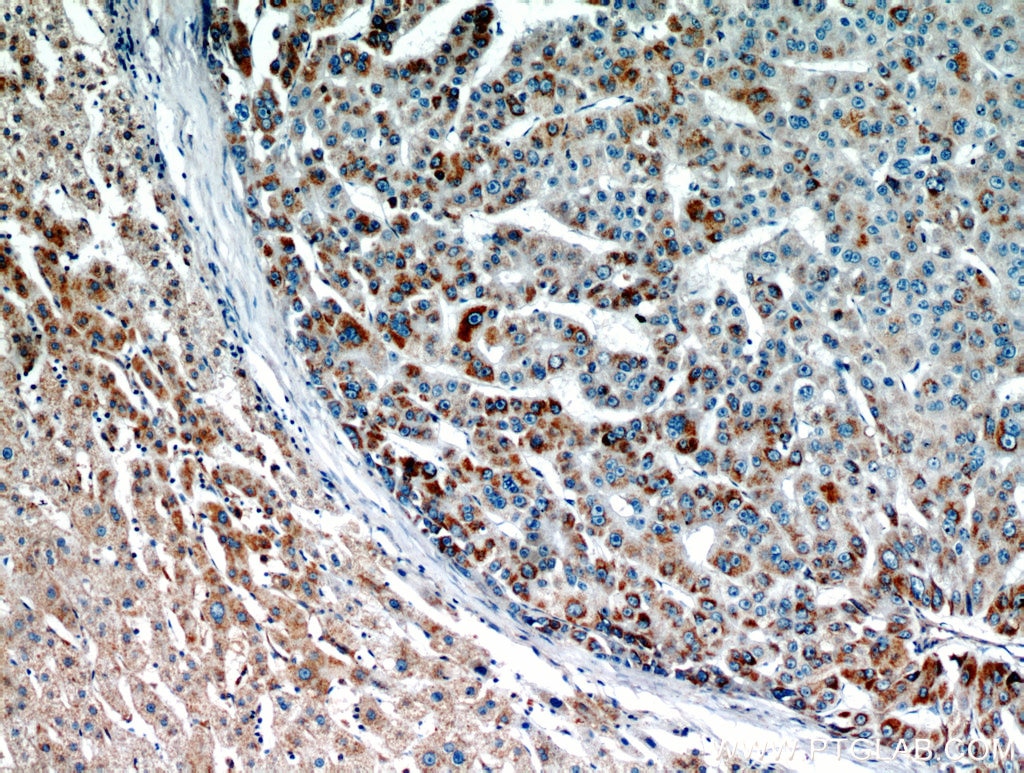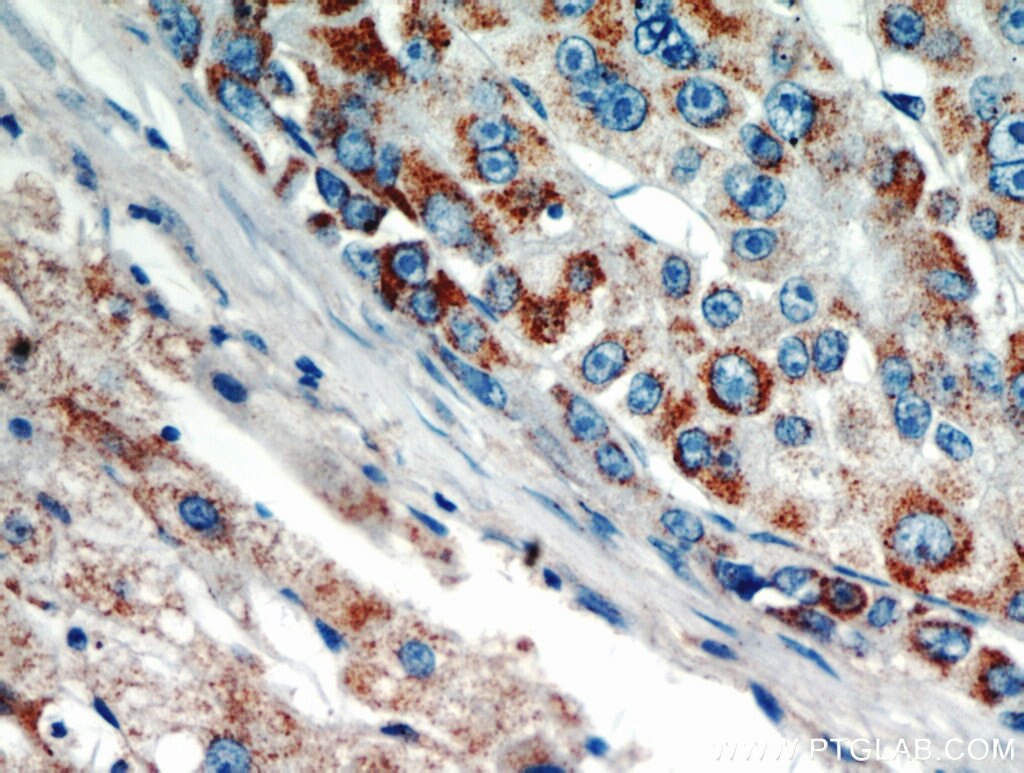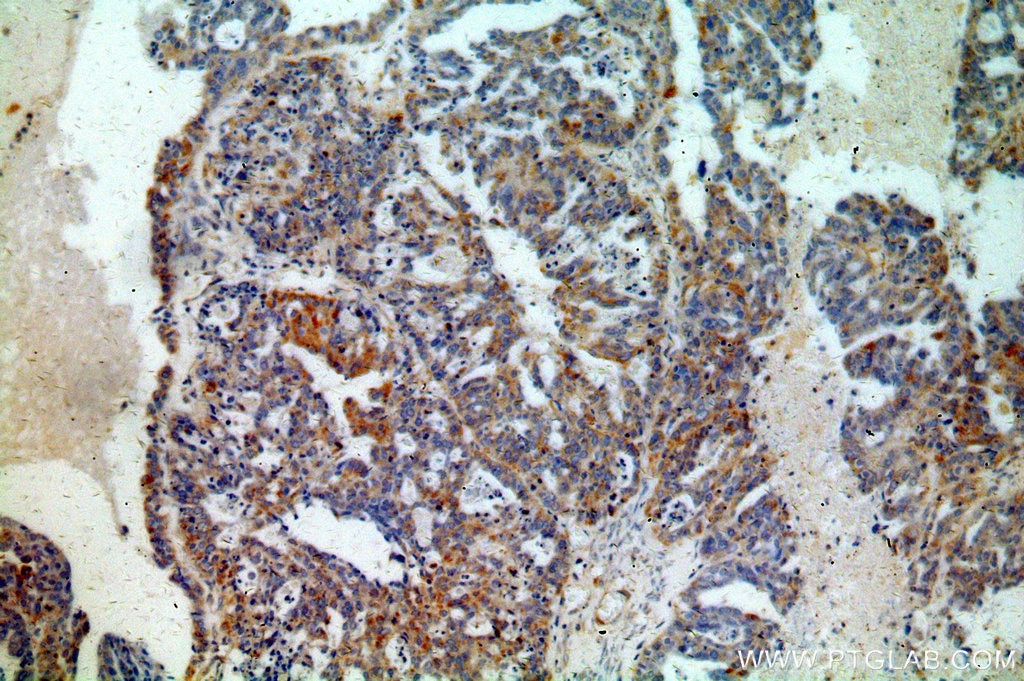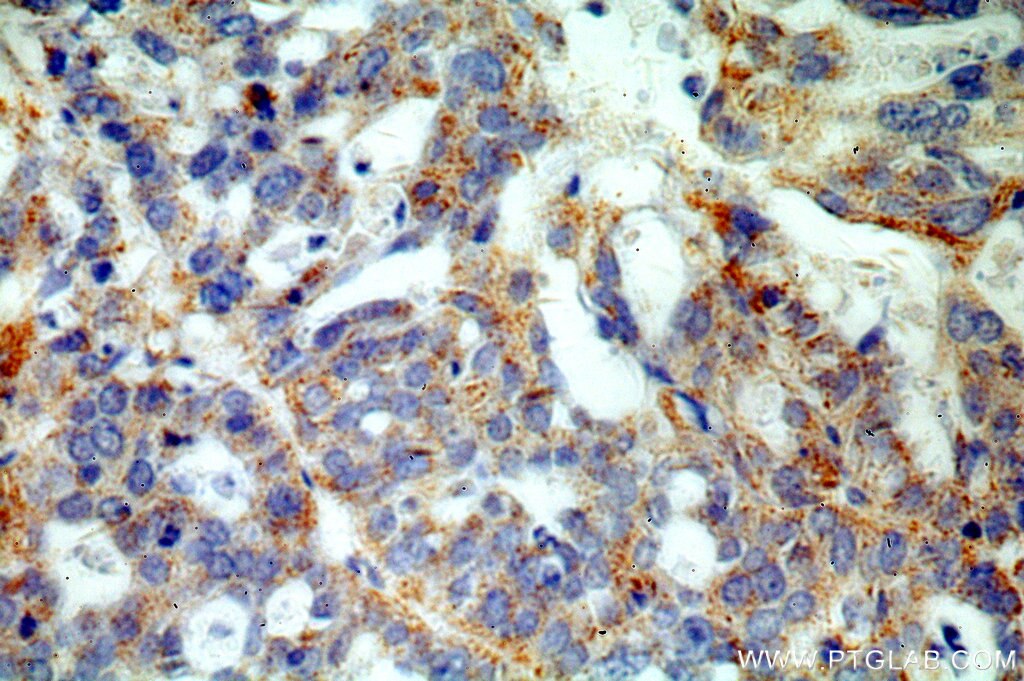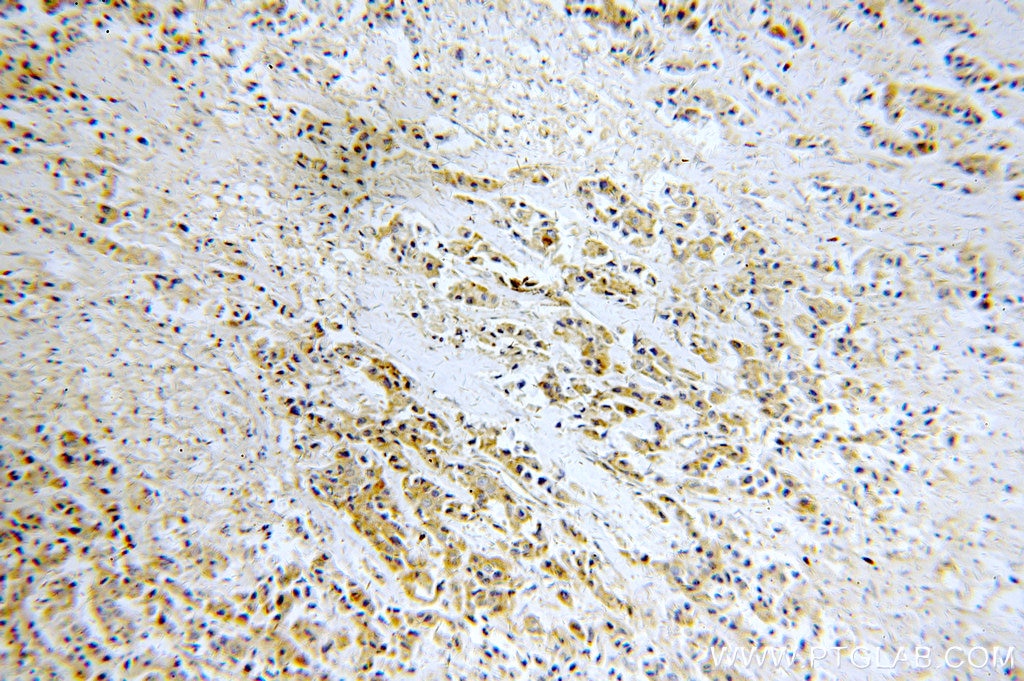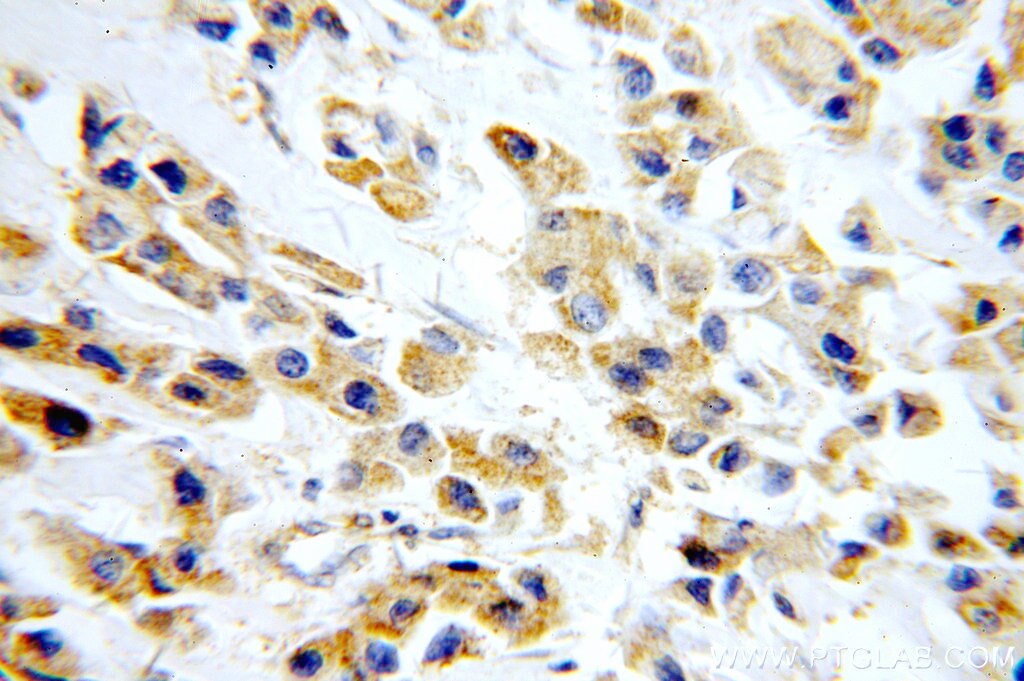Tested Applications
| Positive WB detected in | NIH/3T3 cells |
| Positive IP detected in | HepG2 cells |
| Positive IHC detected in | human liver tissue, human breast cancer tissue, human liver cancer tissue, human ovary tumor tissue Note: suggested antigen retrieval with TE buffer pH 9.0; (*) Alternatively, antigen retrieval may be performed with citrate buffer pH 6.0 |
Recommended dilution
| Application | Dilution |
|---|---|
| Western Blot (WB) | WB : 1:500-1:1000 |
| Immunoprecipitation (IP) | IP : 0.5-4.0 ug for 1.0-3.0 mg of total protein lysate |
| Immunohistochemistry (IHC) | IHC : 1:100-1:400 |
| It is recommended that this reagent should be titrated in each testing system to obtain optimal results. | |
| Sample-dependent, Check data in validation data gallery. | |
Published Applications
| KD/KO | See 2 publications below |
| WB | See 16 publications below |
| IHC | See 2 publications below |
Product Information
17609-1-AP targets AKT2 in WB, IHC, IP, ELISA applications and shows reactivity with human, mouse, rat samples.
| Tested Reactivity | human, mouse, rat |
| Cited Reactivity | human, mouse, rat |
| Host / Isotype | Rabbit / IgG |
| Class | Polyclonal |
| Type | Antibody |
| Immunogen |
CatNo: Ag11770 Product name: Recombinant human AKT2 protein Source: e coli.-derived, PGEX-4T Tag: GST Domain: 1-147 aa of BC063421 Sequence: MRCLSSKKAGSTSVVKYIKTWRPRYFLLKSDGSFIGYKERPEAPDQTLPPLNNFSVAECQLMKTERPRPNTFVIRCLQWTTVIERTFHVDSPDEREEWMRAIQMVANSLQPHLCAQTRIWKTPPPAQAWAVGRLEIQVLIHTSPSEG Predict reactive species |
| Full Name | v-akt murine thymoma viral oncogene homolog 2 |
| Calculated Molecular Weight | 481 aa, 56 kDa |
| Observed Molecular Weight | 56 kDa |
| GenBank Accession Number | BC063421 |
| Gene Symbol | AKT2 |
| Gene ID (NCBI) | 208 |
| RRID | AB_2305350 |
| Conjugate | Unconjugated |
| Form | Liquid |
| Purification Method | Antigen affinity purification |
| UNIPROT ID | P31751 |
| Storage Buffer | PBS with 0.02% sodium azide and 50% glycerol, pH 7.3. |
| Storage Conditions | Store at -20°C. Stable for one year after shipment. Aliquoting is unnecessary for -20oC storage. 20ul sizes contain 0.1% BSA. |
Background Information
AKT2 is one of 3 closely related serine/threonine-protein kinases (AKT1, AKT2 and AKT3) called the AKT kinase, and which regulate many processes including metabolism, proliferation, cell survival, growth and angiogenesis and their activation has been observed in a wide variety of cancers. AKT2 is mainly involved in cancer cell survival, apoptosis inhibition, migration and invasion(PMID:21979951). Defects in AKT2 are a cause of susceptibility to breast cancer (BC). AKT2 promotes metastasis of tumor cells without affecting the latency of tumor development. And defects in AKT2 are a cause of non-insulin-dependent diabetes mellitus (NIDDM) and hypoinsulinemic hypoglycemia with hemihypertrophy (HIHGHH). The full length protein has four glycosylation sites.
Publications
| Species | Application | Title |
|---|---|---|
Acta Pharm Sin B Taxifolin attenuates liver fibrosis by regulating the phosphorylation of NDRG1 at Thr328 via hepatocyte-stellate cell cross talk | ||
EMBO J Asparagine reinforces mTORC1 signaling to boost thermogenesis and glycolysis in adipose tissues. | ||
Respir Res AKT2 drives cancer progression and is negatively modulated by miR-124 in human lung adenocarcinoma.
| ||
Oncotarget Estrogen regulates miRNA expression: implication of estrogen receptor and miR-124/AKT2 in tumor growth and angiogenesis. | ||
Food Funct l-Theanine regulates glucose, lipid, and protein metabolism via insulin and AMP-activated protein kinase signaling pathways | ||
Reviews
The reviews below have been submitted by verified Proteintech customers who received an incentive for providing their feedback.
FH Tom (Verified Customer) (11-03-2020) | Antibody diluted at 1:500 in blocking solution (5% BSA in TBS) and incubated overnight at 4 degrees.
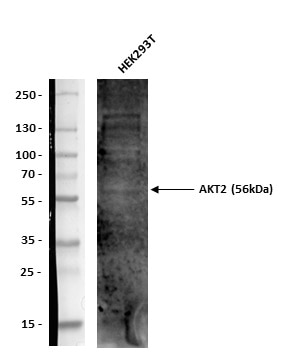 |

